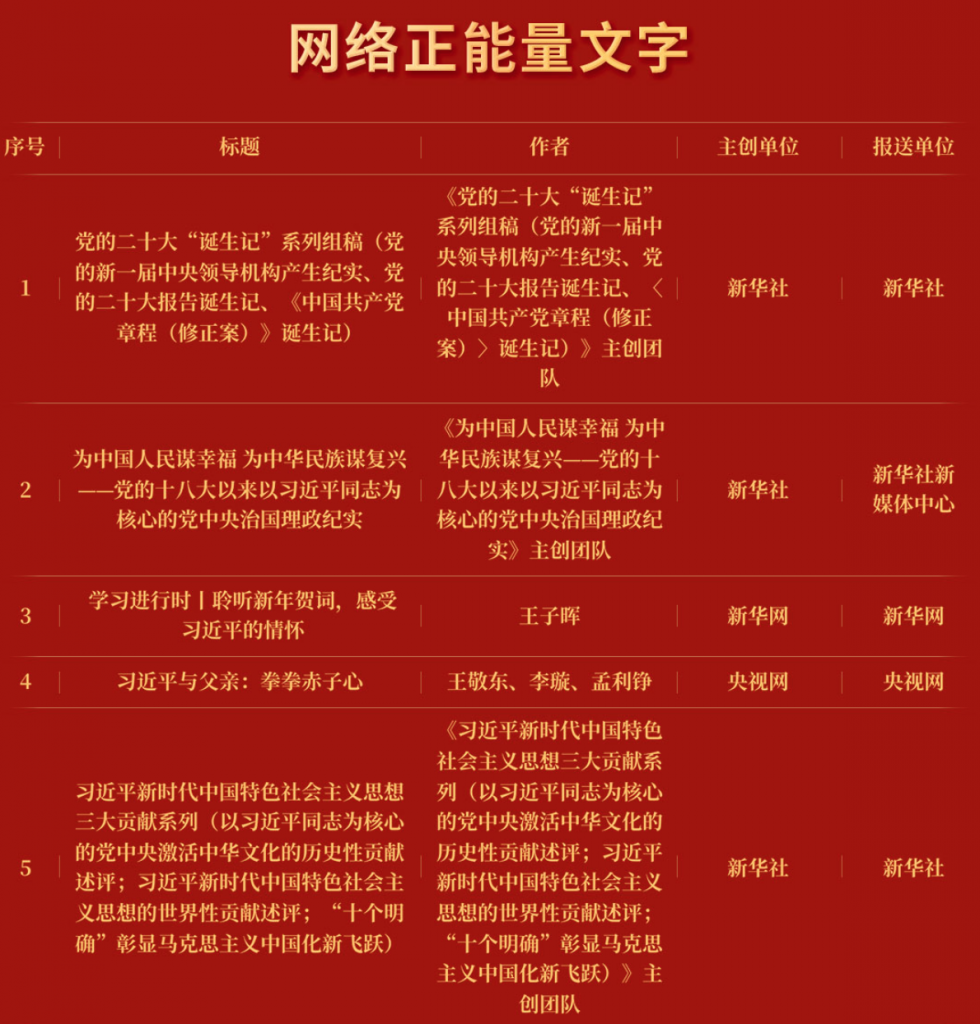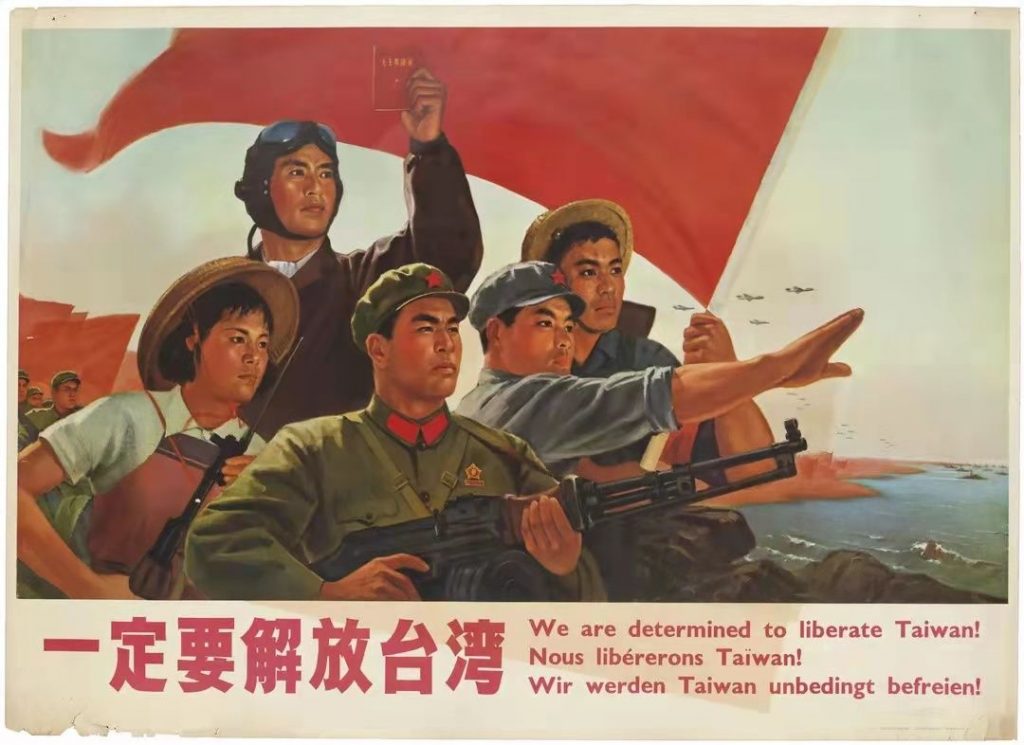
Over the weekend, China’s Cyberspace Administration unveiled its 2022 China Positive Energy Online Exemplars Final Selection (2022中国正能量网络精品终选结果). “Final selection” may be something of a misnomer. The lists cover 550 entries in photography, video, events, and the written word — but, taken together, they provide a revealing window into just what the Chinese Communist Party (CCP) considers “positive.”
The phrase “positive energy” (正能量) generally refers to the need for uplifting messages as opposed to critical or negative ones – and particularly the need for content that puts the Communist Party and the government in a positive light. From its unlikely origins in a self-help book by a British psychologist, the phrase has gone on to inform state media policy under Xi Jinping. But ten years after it was declared the most popular new catchphrase in China, the national mood has dimmed noticeably. The defining neologisms of the 2020s are “lie flat” (躺平), “runology” (润学), “involution” (内卷), and “the last generation” (最后一代).
“Positive energy,” clearly, is more important than ever before. So what are the “positive” stories being showcased in these uncertain times?
Positively Horrific

Hidden among the hundreds of entries are a few human interest stories that genuinely speak to the resilience and compassion of people around the country — suicide hotline counselors, firefighters, and educators, for example. But across every medium, the top winners are invariably stories praising Xi Jinping. The top five articles aren’t works of storytelling at all but merely summaries and commentaries on Xi’s speeches. The silver medalist invites us to “Feel Xi Jinping’s Affections by Attentively Listening to His New Year Greeting.”
Further down the list, other pieces run the gamut of propaganda favorites: the “charming” facilities of the Beijing Winter Olympics; the Hong Kong handover at 25; and the “War to Resist US Aggression and Aid Korea” at 72. Guangming Daily’s “What is Xinjiang Really Like?” comes off as more defensive than positive, however. Scraped together in response to the UN Human Rights Office report on Xinjiang, which found that China’s treatment of Uyghurs and other Muslim groups in far-western Xinjiang may constitute crimes against humanity, it is a mishmash of portraits of always-happy and typically dancing Uyghurs. When it comes to the attitudes of some of its interviewees, though, “positive energy” may be an understatement. One describes being “so excited he burst into tears” at the sight of Xi Jinping:
I was deeply educated. And as religious figures, we must remember General Secretary Xi Jinping’s ardent wish, always feel the Party’s benevolence, listen to the Party, follow the Party, and unite all believers firmly around the Party and the government,” said the emotional Maimati Guma.

One person’s “positive” may be another’s “horrific.” One example on the CAC list is “Wuhan’s Taipei Road Ends at Liberation Avenue” (武汉台北路尽头是解放大道). To Chinese nationalists, this piece, which uses street names in a Wuhan neighborhood to suggest the inevitability of Taiwan’s incorporation into the PRC, may sound pleasing. But to Taiwan’s 23 million people, the threat of a grisly war in their homeland (“liberating” Taiwan, a Cold War-era slogan, suggests the Taiwanese government is illegitimate and must be crushed) is unlikely to elicit “positive energy.”
One also wonders what is so “positive” about racial tensions in the United States. Another honorable mention, the Global Times’ “The Tumor of Racism Exacerbates US Social Division,” (种族主义“毒瘤”加剧美国社会撕裂) is little more than a laundry list of American society’s “failures”: poor healthcare access, income inequality, mass shootings, the legacy of segregation, racist violence. As well-earned as these shots may be (and the author cites reports from US media and civil society to substantiate them), few actually touched by these issues would ascribe “positive energy” to them.
But of course, some would. And perhaps the most striking illustration of who is provided by this finalist in the image category:

“Unmask Three-Faced Pelosi,” produced by the Xinhua news agency in response to Nancy Pelosi’s “sneaky visit” to Taiwan, was listed alongside an accompanying listicle on the “Six Sins” of the then-House Speaker, who paid a high-profile visit to Taiwan in August 2022. Little about either scream courage, compassion, devotion, dedication, or any other traditionally “positive” human attribute.
When the media’s sole purpose is to make the Party feel good about itself, however, “positive energy” can lead down some dark alleys.




















